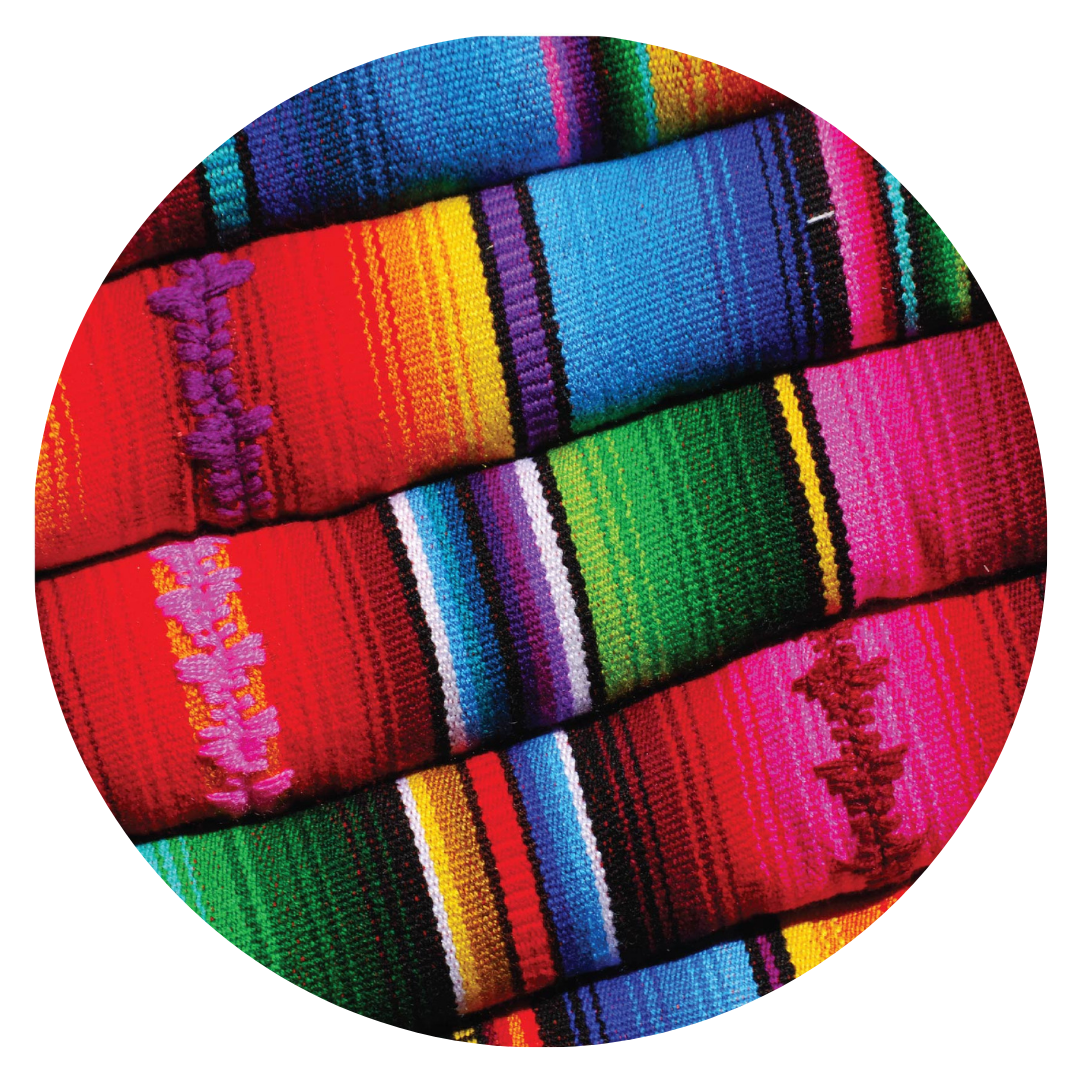April, 2022
Tuesday, April 05, 2022 | 02:30 pm

Pious Imperialism: Spanish Rule and the Cult of Saints in Mexico City
Cory Conover , Augustana University
In this talk, Dr. Cory Conover draws from his book Pious Imperialism: Spanish rule and the cult of saints in Mexico City to shift through the contradictory claims about the role of Catholicism in the Spanish Empire over the long seventeenth century. Using the story of an accidental Mexican martyr, Conover weaves together a global history from missionaries in Japan, to politics of Rome, to the religious culture of Mexico City. An innovative focus on Catholic worship reveals the surprising pervasiveness of Spanish holy figures who disseminated imperialism to parishioners. It also shows how colonial peoples established themselves within the sanctity of Catholic liturgy thus setting a religious stage for later independence movements.
Thursday, April 07, 2022 | 01:00 pm

Research in Latin America During the Pandemic: How to Accept and Adapt to Changing Circumstances
Alejandra Acuña Balbuena
MALAS student Alejandra Acuña Balbuena will be presenting about the challenges she encountered during the COVID-19 pandemic to develop her research project on waste management issues in her home city of Asuncion, Paraguay. From external logistical challenges like traveling and conducting field research in person to internal issues that dealt with motivation, the pandemic made it seem like it would be impossible to complete a research project as the one she originally envisioned, largely based on day-to-day interactions with community members and facilitating group conversations as a research method. During this event, Acuña Balbuena will be focusing on how her research project was affected by the pandemic, how she adapted to changing global circumstances, and how she overcome personal and logistical challenges.
Born and raised in Paraguay, Alejandra Acuña Balbuena started her global education from a pretty young age. She left her country for the first time at 17 to finish high school in Norway. She then continued her undergraduate education in the United States, spending some time in between studying and living in Italy. She graduated with a dual degree in Environmental Sustainability and Italian in May 2020 from the University of Oklahoma and joined the Master in Latin American Studies at UNM in fall 2020, Her main academic interests include feminist geographies, urban political ecologies, and environmental injustice in urban environments. Her research focuses on discourses around the labor of urban waste pickers in her hometown of Asunción.
Thursday, April 07, 2022 | 02:00 pm
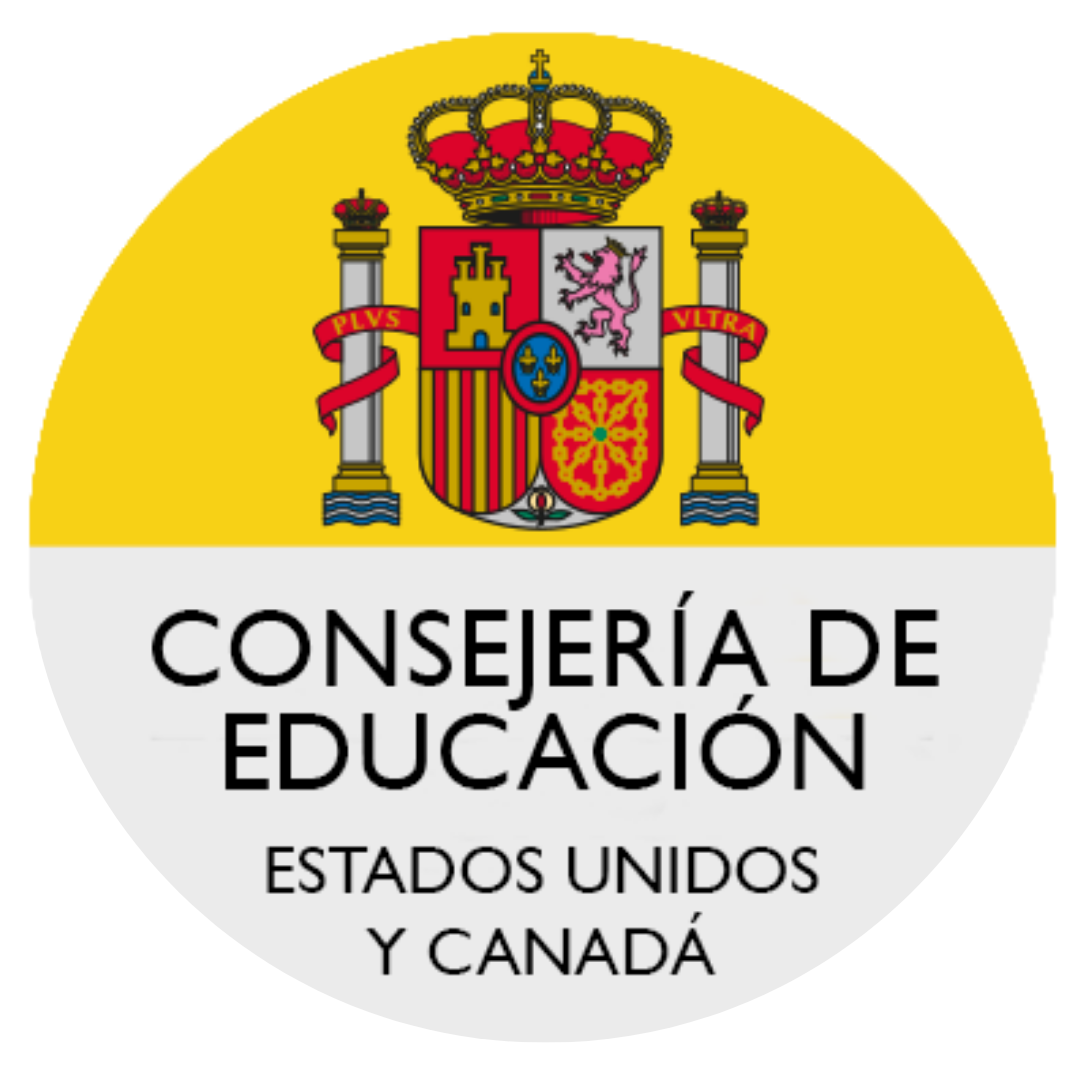
North American Language Assistants Program: Cultural Ambassadors Program Info Session
The Education Office of the Embassy of Spain promotes diverse educational outreach programs in the United States. Located in Washington D.C., the primary goal of the Education Office of Spain is to foster collaborative educational programs between the USA and Spain, building long lasting ties among their citizens.
Our flagship program, both in number and scope is the North American Language and Culture Assistants Program (NALCAP). American college students and graduates- who are native-like speakers of English - partner with elementary and secondary schools in Spain to bolster language programs, as language assistants (TAs) under the supervision and guidance of teachers in Spain.
NALCAP falls under the category of public diplomacy programs. As a language assistant, you will be fulfilling the role of a cultural ambassador as you advance English language learning and mutual understanding through cultural exchange. As such, your role is to encourage students of all ages in Spain to broaden their knowledge of your language and culture.
Join this info session to learn more!
Friday, April 08, 2022 | 12:00 pm

Translingual Literacy Studies Digital Hub :Democracy & Paradox
Ralph Cintron, Frida Sanchez-Vega, and Ruben Casas
Featured speakers Ralph Cintron, Frida Sanchez-Vega, and Ruben Casas will present their working paper “Democracy & Paradox” to engage current discourses about global challenges to democracy: authoritarianism, autocracy, climate change, and global migration of environmental refugees.
Friday, April 08, 2022 | 02:00 pm

Oaxaca Resurgent: a book panel on indigeneity, education, and development in the Americas
A. S. Dillingham, Albright College; Tiffany S. Lee, UNM; Yolanda Teran
A panel discussion on Dr. Shane Dillingham's recently-published book "Oaxaca Resurgent: Indigeneity, Development, and Inequality in Twentieth-Century Mexico". The panel will tackle the book's contributions to the field of Mexican history and indigenous studies, and elaborate on the broader hemispheric connections (North and South America) of such discussions.
A. S. Dillingham is a historian and professor. He is currently Assistant Professor of Latin American History at Albright College in Reading, Pennsylvania. Previously, Dillingham taught at Reed College in Portland, Oregon and Spring Hill College in Mobile, Alabama. He serves on the organizing collective of the Tepoztlán Institute for the Transnational History of the Americas. He holds a PhD in History from the University of Maryland. Dillingham’s research focuses on the historical experiences of Native peoples of the Americas. In particular, he focuses on twentieth-century Mexico, the intersection of anticolonial politics and educational and development policy, and labor and youth-led social movements.
Tiffany S. Lee (Diné /Lakota) is Dibé Łizhiní (Blacksheep) and born for Naałaní (Oglala Lakota). She is from Crystal, New Mexico, located on the Navajo Nation, on her mother’s side, and Pine Ridge, South Dakota on her father’s side. Dr. Lee is a Professor and Chair of Native American Studies at the University of New Mexico. She earned her doctorate in Sociology of Education from Stanford University. Her research examines Native youth perspectives with regard to language reclamation and identity. She also investigates socio-culturally centered educational approaches. She is the former President of the Navajo Studies Conference, Inc and a former high school social studies and language arts teacher at schools on the Navajo Nation and at Santa Fe Indian School. She is also a member of the New Mexico Indian Education Advisory Council for the NM Office of Indian Education.
Dr. Yolanda Teran is from the Indigenous Kichwa Nation of Ecuador. She was born in San Gabriel City in the north of Ecuador, South America. Since 1994 she has been an Indigenous representative for Latin America and the Caribbean before the United Nations. She holds B. A. in Museology from the Universidade do Rio de Janeiro in Brazil, an MA from the University of Leicester, England, and a PhD from UNM's College of Education with a concentration in Language, Literacy and Socio-Cultural Studies.
Wednesday, April 13, 2022 | 03:00 pm

"Kill the Indian to Save the Man" - Culturally and Linguistically Relevant Curriculum and the New Social Studies Standards in NM - (Martinez/Yazzie) Case
Joseph García
K-12 Education in New Mexico since the 2018 Martinez/Yazzie Decision is undergoing a major transition in terms of the historical neglect of Native American, English Language Learners and "At-Risk" students. As the politics of the U.S. has become divisive and Critical Race Theory has become a lightning rod issue in many states including NM. The NM Public Education Department is under pressure to at the same time show that the Martinez/Yazzie Decision is being implemented and after 20 years the social studies curriculum is being updated with culturally and linguistically relevant curriculum, part of the Martinez/Yazzie Decision. NMLESC Senior Policy Analyst and Chicanca and Chicano Studies Adjunct Professor Dr. Joseph J. García provides a brief overview and takes questions about this historical time in NM education history.
Dr. Joseph García has a doctorate in Latin American Studies from the University of New Mexico and Dual-Degree Masters in Community and Regional Planning and Latin American Studies. He has taught at the University of New Mexico (Chicana and Chicano Studies), Union College (Latinx, Latin American and Caribbean Studies), and Texas A&M International University (history and sociology). His research focuses on the historical sociology of environmental justice movements and leadership in the Americas. He was a Peace Corps volunteer in rural Paraguay where he conducted post-service critical groundwater governance research. He is the son of voting rights organizers and has published on the history of voting rights and Latinx political participation and engagement in Texas. He has also taught at the secondary level and is currently a senior policy analyst with the NM Legislative Education Study Committee. https://chicanos.unm.edu/people/faculty/joseph_j_garcia.html
Thursday, April 14, 2022 | 01:00 pm

Central American Women in the Workforce
Joselin Castillo
This talk addresses the transnational experience of Central American women in the workforce. With migration and gender at the center of the conversation, the presentation explores the ways Central American women laborers are perceived at local and international spaces. The research for this presentation is inspired by Castillo's experience raised by four Guatemalan women and as a first-generation Guatemalan American from Los Angeles. As the first in her family to enter the university, her talk will discuss how she entered the field of research, how she conceptualizes herself in her work, and reflects on the experiences of the Central American diaspora in relation to the larger Latin American region.
Joselin Castillo is a second-year MALAS student at UNM. She received a BA in Anthropology and a minor in Women, Gender and Sexuality at California State University, Los Angeles. Coming from a Guatemalan immigrant family and raised by a single mother, her research is focused on the experience of Central American mothering. Influenced by the caregivers in her life and the complex networks of communal caregiving, her research focuses on the intersectionality and transnational identity through the form of an autoethnography.
Sunday, April 17, 2022 | 03:00 pm
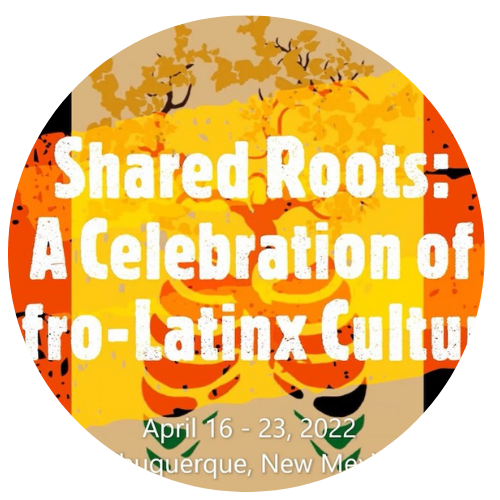
AfroMundo Festival: Shared Roots
Shared Roots is a weeklong series of bilingual presentations showcasing the shared histories, cultures and traditions of Afro peoples throughout the Americas.
Featured regions are Quisqueya (home of Haiti where the first successful slave rebellion occurred, and of the Dominican Republic, first Spanish colony in the Americas from where Hernan Cortes, Francisco Pizarro, Diego Velasquez and Alonso de Ojeda launched incursions into Mexico, Peru, Cuba, Venezuela), Mexico (which only last year included Afro-Mexicans in the census), Puerto Rico (a U.S. territory since 1898), and Spain (whose African influences are generally overlooked). Most events are free and open to the public.
Monday, April 18, 2022 | 12:30 pm
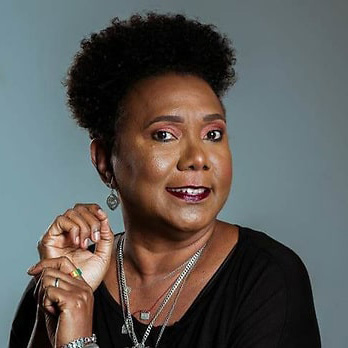
Cimarronaje y Arte en la República Dominicana: A Talk with Afro-Dominican Artist Xiomara Fortuna
Xiomara Fortuna
A singer, composer, and cultural activist recognized internationally as a foremost representative of alternative music and Afro-Caribbean fusion in the Dominican Republic, Fortuna will discuss the re-articulation of cimarronaje (cultural practices of runaway slaves) in artistic production as a defining feature of Afro-Dominican arts.
Monday, April 18, 2022 | 02:30 pm
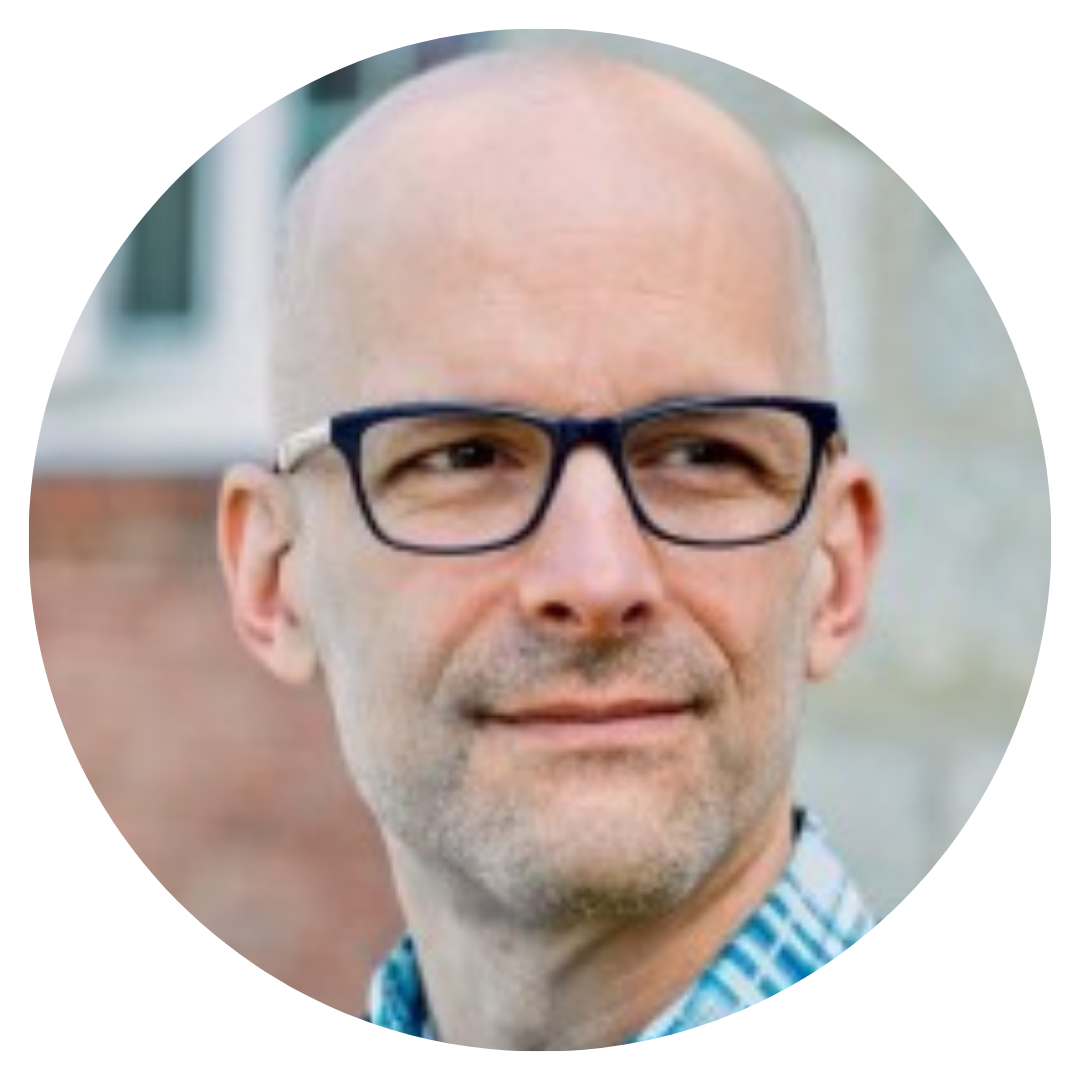
Family Made Strange: The Impact of Social Media on Family Dynamics, as a Classe Popular Family from Recife, Brazil Contemplates the 2018 Presidential Elections
Benjamin Junge , State University of New York at New Paltz
In this talk, Benjamin Junge will present an ethnographic account of an extended family from Recife during the final month of Brazil’s 2018 election season—the most contentious and polarizing election in a generation, in which hard-right congressman and former military captain Jair Bolsonaro triumphed to assume the presidency. The family exemplifies the sector once referred to as Brazil’s “new middle class”—the estimated 35 million who rose above the poverty line during 14 years of rule by the left-leaning Workers Party (PT), but whose prospects have since become precarious under conditions of economic and political crisis. Drawing from extended ethnographic fieldwork, I focus on the family’s interactions—both in-person and through online social media—between the first-round election (October 7), in which voters chose from over a dozen candidates, and the second-round election (October 28), which pitted Bolsonaro against PT candidate Fernando Haddad. Emerging within the family’s interactions are narratives of moral disintegration, nostalgia for Brazil’s 1964-1985 military dictatorship, lost masculinities, menacing sexualities, and various articulations of hope and despair for the future. I argue the crucial role of online social media (chiefly, Facebook and WhatsApp) in cultivating among family member conflicting feelings of unity and solidarity, on the one hand, and disenchantment and alienation on the other. This analysis contributes to a more nuanced account of the political affinities of Brazil’s “previously ascendant” sector during a moment of deepening economic precarity and political cynicism.
Benjamin Junge is Professor of Anthropology at the State University of New York at New Paltz. His research focuses on class mobility, political attitudes, gender, sexuality, health, and religion, with regional focus on Brazil and other settings in Latin America. His recent publications include Precarious Democracy: Ethnographies of Hope, Despair and Resistance in Brazil (2021) and Cynical Citizenship: Gender, Regionalism and Political Subjectivity in Porto Alegre, Brazil (2018). He recently co-directed a three-year investigation, funded by the National Science Foundation, of political subjectivities among the demographic sector once known as Brazil’s “new middle class,” focusing on perceptions of the 2013-18 crisis, cultural memory of authoritarian pasts, and the rise of popular conservativism.
Tuesday, April 19, 2022 | 01:00 pm

Decolonizing the Academy: A Lecture/Slide Presentation by Mayra Santos-Febres
Mayra Santos-Febres
A world renowned, award-winning Afro-Puerto Rican author of seminal novels, Dr. Santos-Febres will deconstruct hegemonic texts in Latin American and Hispanic Studies to facilitate a conversation about Afro Latinidad on a hemispheric level and illuminate the inclusive nature of the diasporic Black experience.
Wednesday, April 20, 2022 | 12:00 pm
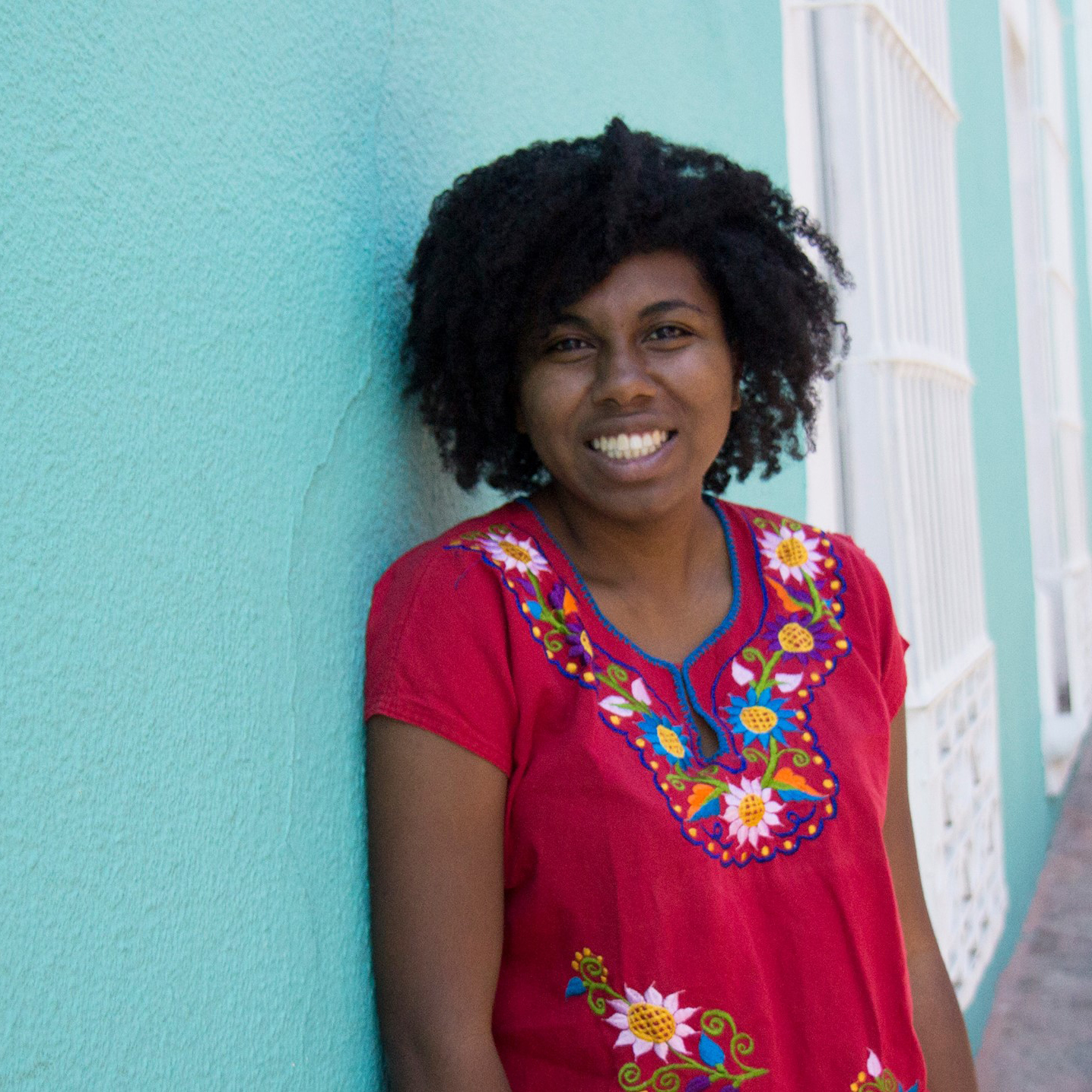
Afro Voices from the U.S./Mexico Border: A Film Screening and Discussion with Ebony Marie Bailey
Ebony Marie Bailey
An award-winning film creator, Bailey’s documentary Life Between Borders: Black Migrants in Mexico addresses the political, social, and environmental climate that have contributed to the displacement of Haitian migrants at the U.S.-Mexico border. It opens the discussion of Haitian-Mexican relations to illuminate how Blackness is understood, discriminated against, and embraced in Mexico’s borderlands.
Friday, April 22, 2022 | 05:15 pm
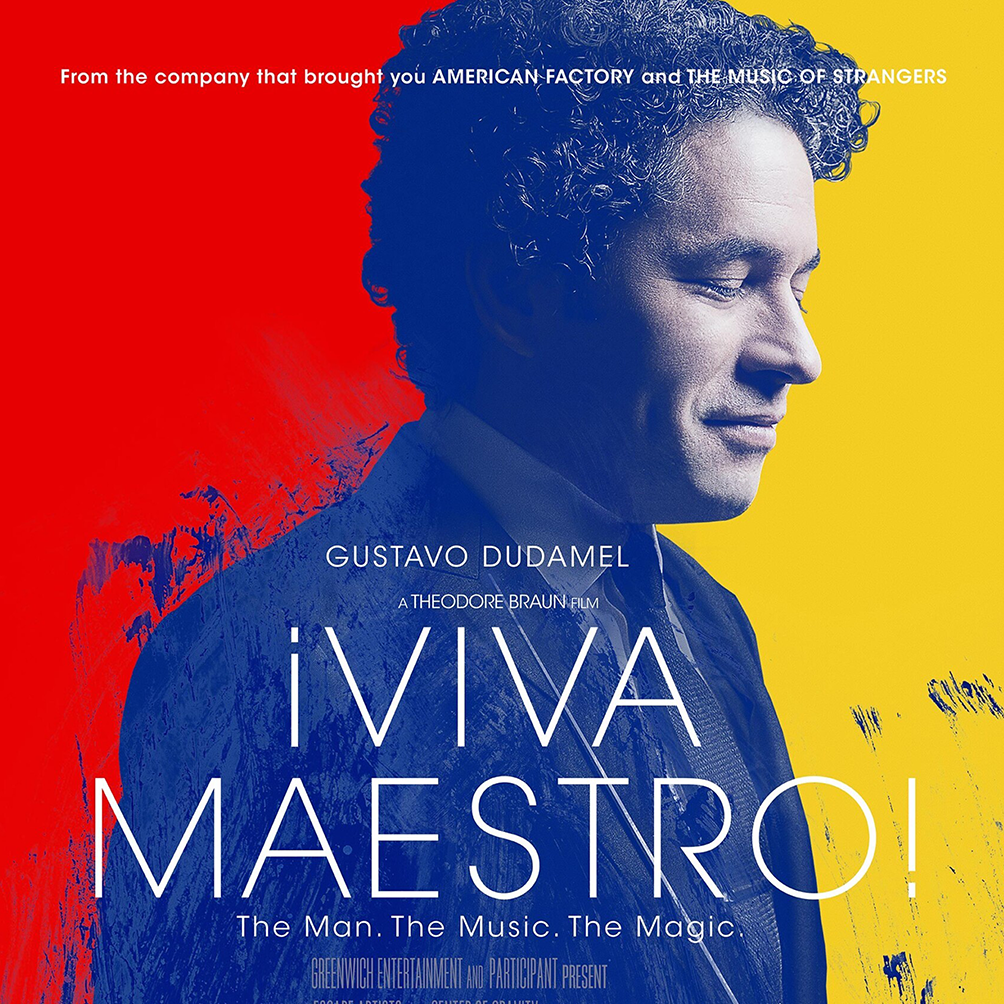
¡VIVA MAESTRO! The Man. The Music. The Magic.
When conductor Gustavo Dudamel’s international tours are disrupted by deadly protests across his native Venezuela, one of the world’s greatest and most beloved musicians faces the challenge of a lifetime —one that will deepen his commitment to the mentor who changed his life, upend relationships with friends and musicians he’s led since his teens, and test his belief in art’s transformative capacity. ¡VIVA MAESTRO!, the uplifting and timely new documentary from acclaimed director Ted Braun, follows Dudamel around the world as he responds to these unexpected and daunting obstacles with powerful music-making and an innovative and triumphant concert that celebrates the power of art to renew and unite.
Tuesday, April 26, 2022 | 01:00 pm
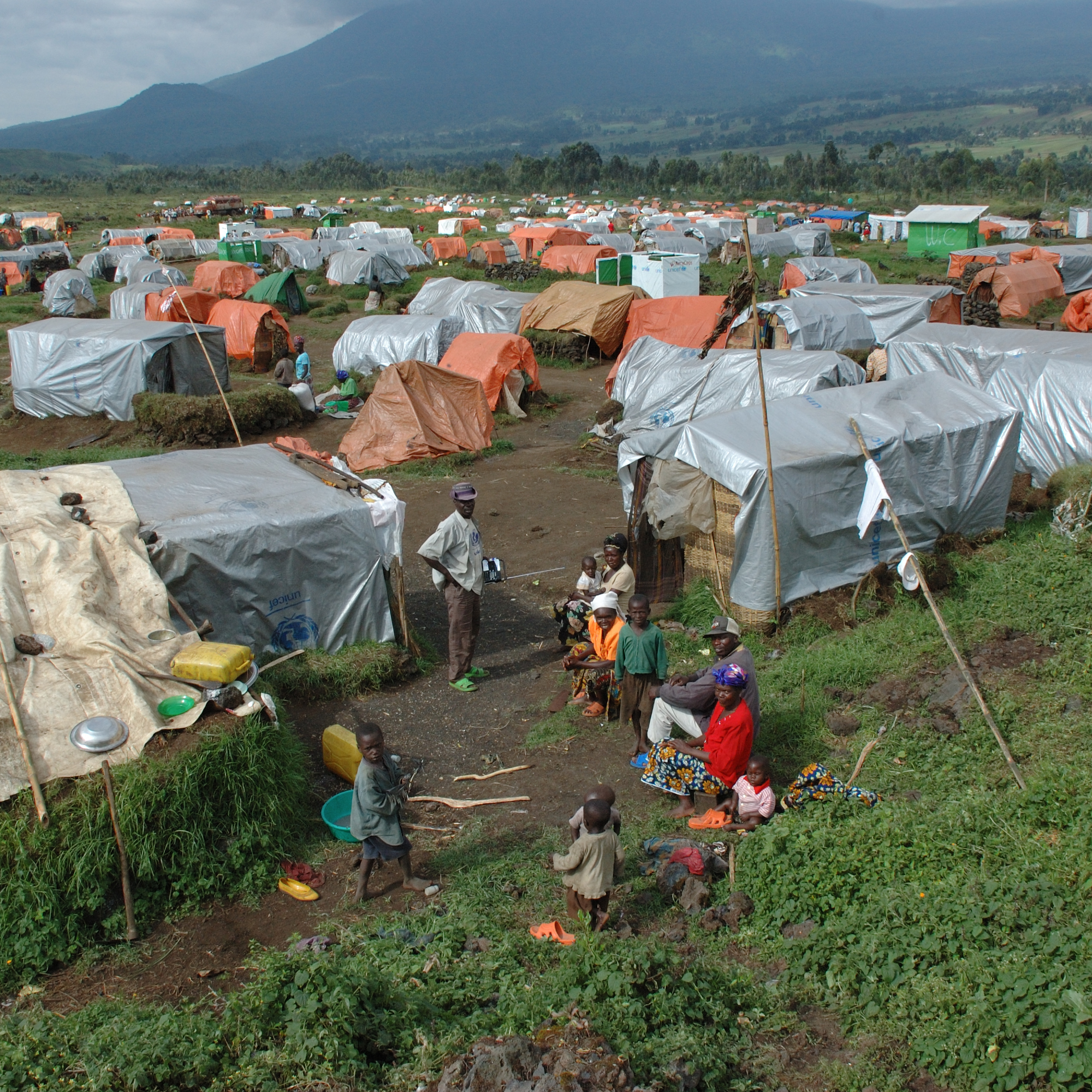
Working with Refugees
This event will be a discussion with people who are currently working with refugees around the world in various capacities including on the ground on a daily basis, as a representative of the U.S. Government and as part of the UNM community. Kayra Martínez, founder of Love Without Borders for Refugees in Need, will be speaking about the work the organization is doing to help Ukrainian refugees. Danielle Parker, Community Research Specialist at UNM Refugee and Immigrant Well-Being Project (RIWP) will address how students can gain skills to work with refugees and become involved.
Tuesday, April 26, 2022 | 02:00 pm
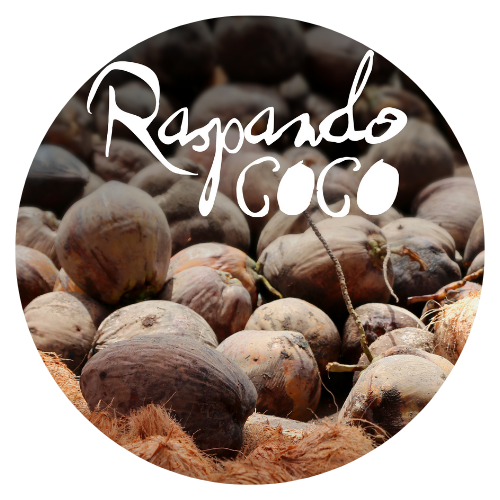
Raspando Coco Screening and Director Discussion
Pilar Egüez Guevara
Raspando coco is an award-winning film about the culinary and medicinal traditions of Afro-Ecuadorians. Since its premiere in 2018, it has been screened in three different languages to audiences in Latin America, the United States, Europe and Japan. The film documents the health impacts and culinary traditions surrounding coconut as remembered and experienced by Afro-Ecuadorians in the coast of Ecuador. The movie positions communities of color as important knowledge bearers about health and food and shows the tensions that can arise when development and public health authorities label staple foods, like coconuts, unhealthy. The film would connect with students and faculty interested in food justice and sovereignty, race and racism, Afro-Latin America, oral history and ethnography, public and community health, and sustainable development and agriculture.
Pilar Egüez Guevara, PhD is an Ecuadorian cultural anthropologist, writer and filmmaker. She holds a PhD in cultural anthropology from the University of Illinois at Urbana Champaign. She has worked directly with communities for over 15 years on research and community-based projects in Argentina, Cuba, Ecuador, and the United States. Her most recent work has focused on amplifying the voices of older women and men who are the bearers of traditional knowledge about food and medicine in the coast of Ecuador. In 2012, she co-founded and currently directs Comidas que Curan, an independent food and media company dedicated to research and promote traditional foods and knowledge through ethnography and film. She most recently directed and produced Raspando coco (Scraping Coconuts) an award-winning documentary about the culinary and medicinal traditions of Afro-Ecuadorians, which has been screened to audiences in the Americas, Europe and Asia. She is a published author, and speaks internationally in educational and community settings about the intersections of food, culture, conflict and health. She most recently taught «Cooking for a strong immune system» an online course taught to 800 community members across three different continents, in partnership with the Seed Savers’ Network of Ecuador. She is also a certified conflict mediator and coach.
Thursday, April 28, 2022 | 01:30 pm
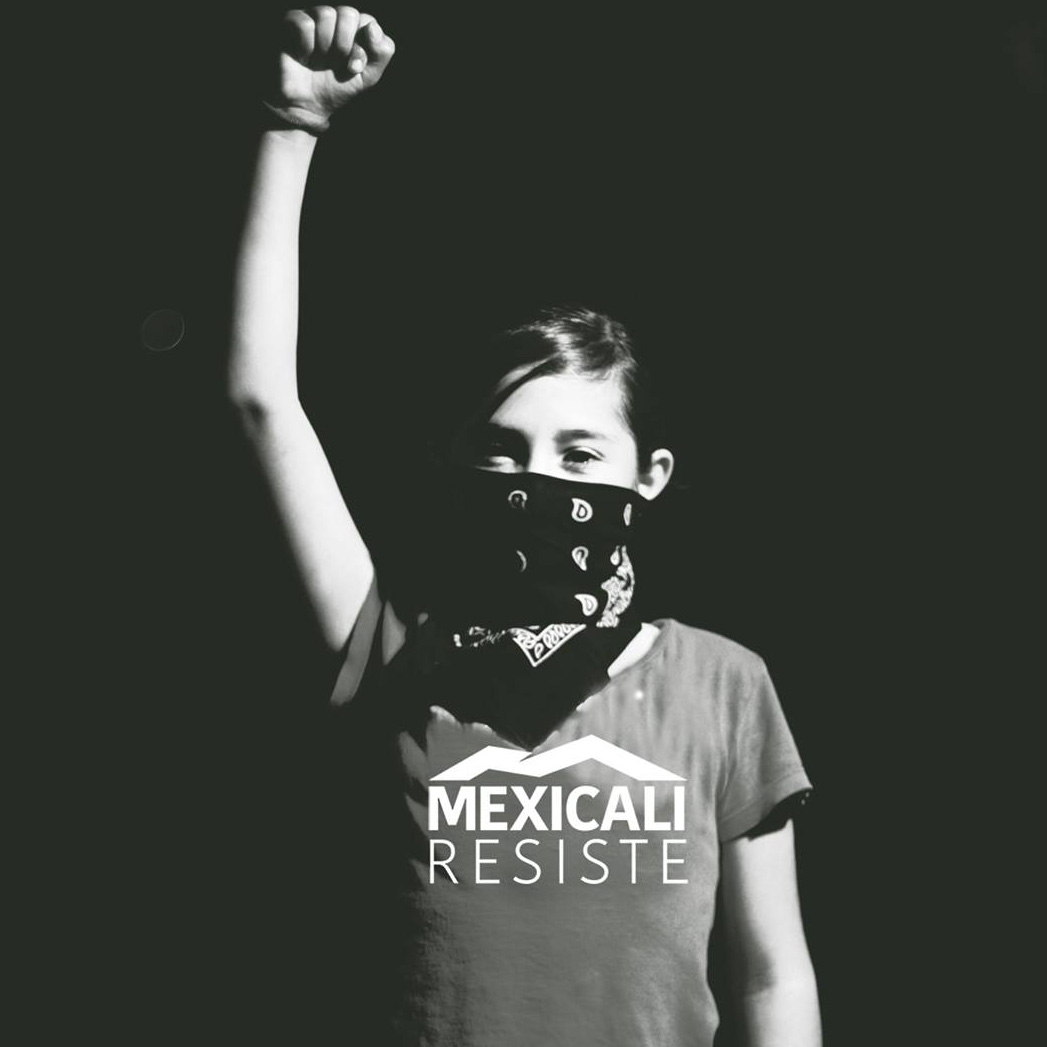
We Are Fingers of a Hand That Make a Fist: Working Class Alliances in Colorado River Water Protests in the Mexicali Valley, Mexico
Benjamin Warner , UNM
This talk explores recent water protests across northern Mexico which emanated from the Mexicali Valley in Baja California, Mexico. Beginning in 2015, communal farmers and industrial laborers, among other groups, aligned under the banner of Defense of Water to protest the construction of a United States-based beverage production facility. Through interviews, participant observation and archival research, I study this social movement through a class-based, historical lens to show how the meaning of water presupposes and represents a century of class politics that has allowed seemingly disparate groups to find meaning and build alliances within it. It is this history that has allowed protesters to achieve shared goals.
Thursday, April 28, 2022 | 04:30 pm

Teaching COP26 and Indigenous Activism in the Classroom
The University of New Mexico’s Latin American & Iberian Institute (LAII) will be hosting a free professional development workshop for educators to explore the United Nations Framework Convention on Climate Change Convention of Parties (COP26).
Lesson plans on COP26 include activities that explain the COP (What is it? What happened? Why is it important?) and a stimulated conference/debate activity mirroring the COP process. Additionally, a media literacy lesson plan will be presented preparing students to critically analyze content featured in the media, focusing on COP26 and Indigenous climate activism.
This workshop connects to the broader theme of this spring semester by centering Indigenous voices, experiences, power, and activism as it pertains to climate justice and provides educators with pertinent resources to approach the topic of COP26 which have the potential to stimulate students to think about climate globally and realize their potential to protect our planet.
The resources presented at this workshop are targeted at high school students but can be applied to all classrooms with adaptation.
Friday, April 29, 2022 | 02:00 pm
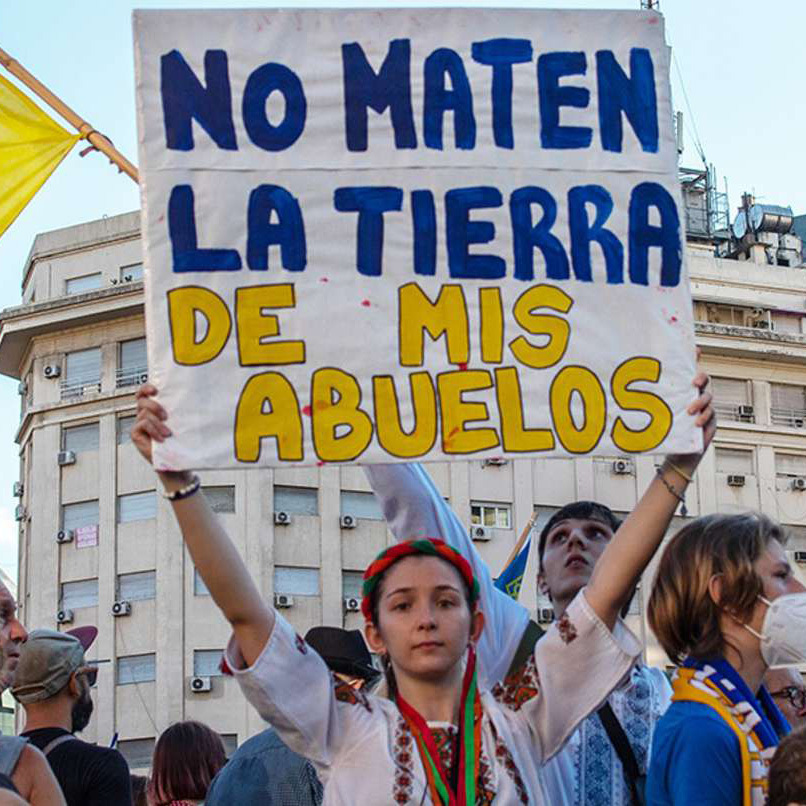
The Effects of the Russian War in Ukraine on Latin America
Adhemar Mineiro, Carlos Pabón Ortega, Francisco R. Rodríguez, Lenny Ureña Valerio
This event will address some of the main effects that the war in Ukraine is having on Latin American countries. By focusing on Brazil, Puerto Rico, and Venezuela, the speakers will share their insights on the political, cultural, and
economic consequences of the war. Adhemar Mineiro will approach the topic from the agricultural sector in Brazil, Carlos Pabón Ortega from the perspective of the political left in Puerto Rico, and Francisco R. Rodríguez from the view of oil markets and US-Venezuelan relations.
